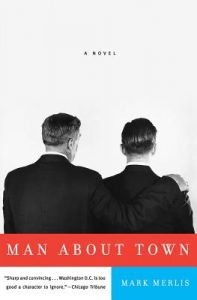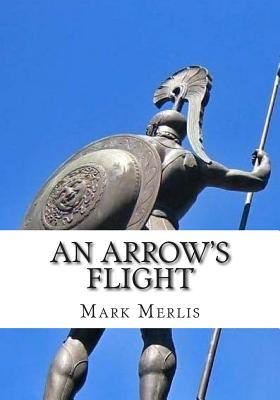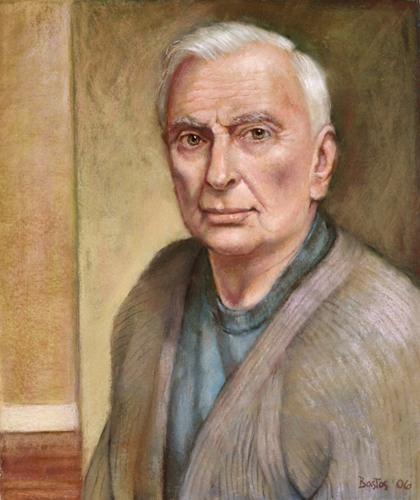Perhaps the most immediately impressive of Mark Merlis’ considerable achievements in his four novels is the sheer range of his subject matter: from the Trojan War thrillingly reimagined (An Arrow’s Flight) to the Red and Lavender Scares of 1950s America (American Studies), the cultural  tumult of the 1960s (Man About Town, JD) and finally the scourge of AIDS in
tumult of the 1960s (Man About Town, JD) and finally the scourge of AIDS in  the 80s and 90s (An Arrow’s Flight again). Merlis’ work is a panoramic meditation on who we are as a culture and—at least as important—a melancholy rumination on what holds us in thrall, whether it’s the complex legacy bequeathed us by the ancient Greeks or simply our own first high school crush “for the baseball player, maybe, just stepping into the locker room, joking with his teammates, now so casually unbuttoning his shirt.”
the 80s and 90s (An Arrow’s Flight again). Merlis’ work is a panoramic meditation on who we are as a culture and—at least as important—a melancholy rumination on what holds us in thrall, whether it’s the complex legacy bequeathed us by the ancient Greeks or simply our own first high school crush “for the baseball player, maybe, just stepping into the locker room, joking with his teammates, now so casually unbuttoning his shirt.”
 Merlis’ novels tend to start small and then swell to a terrible grandeur. In Man About Town, an innocent swimsuit ad initiates Joel Lingeman into a lifetime of wonder and longing.
Merlis’ novels tend to start small and then swell to a terrible grandeur. In Man About Town, an innocent swimsuit ad initiates Joel Lingeman into a lifetime of wonder and longing.  In An Arrow’s Flight, certainly one of the most original novels of the last half-century, two tiny marks left on Philoctetes’ ankle by a snakebite change everything, even the fate of the most beautiful city on earth. American Studies, whose title could stand for the whole of Merlis’ fictional project, is downright claustrophobic in its mise-en-scène: two strangers, an older gay man and a young straight man, occupy adjacent hospital beds for the duration of the novel— and yet by the end, when a door clicks shut and the portal of the Invincible City closes with exquisite gentleness, the narrative has scrutinized the whole history of the American fever dream as well as conjuring the attendant carnage along the way.
In An Arrow’s Flight, certainly one of the most original novels of the last half-century, two tiny marks left on Philoctetes’ ankle by a snakebite change everything, even the fate of the most beautiful city on earth. American Studies, whose title could stand for the whole of Merlis’ fictional project, is downright claustrophobic in its mise-en-scène: two strangers, an older gay man and a young straight man, occupy adjacent hospital beds for the duration of the novel— and yet by the end, when a door clicks shut and the portal of the Invincible City closes with exquisite gentleness, the narrative has scrutinized the whole history of the American fever dream as well as conjuring the attendant carnage along the way.
Merlis understood that America is about violence, that compulsory heterosexuality is about violence, that we are all conscripts in the war machine. But at the same time, what shines through his work is the almost old-fashioned but still radical belief that being gay is, or at least might be, an alternative to all that madness, a political/spiritual rebuke to the world as it is. At heart a visionary, Merlis knew what paradise looked like, even had a pretty good idea of how we might get there, but at the same time the clear-eyed realist in him knew how very nearly impossible that journey might be. In the doubled reality of An Arrow’s Flight, at once Homeric Greece and AIDS-era America, the narrator hymns the “Eronauts,” those heroes of love who, in that now-mythic, super nova decade after Stonewall, “sailed west without a chart,” exuberantly living out their long-repressed desires and fantasies for the sake of everyone who had come before as well as everyone who would come after. Then, in the midst of this rapturous passage, the narrator’s tone turns elegiac, as it so often does in Merlis:
Now the sea lanes they charted have closed behind them. All they discovered, that had waited since the dawn of time to be found, swallowed up. No one will ever go that way again, not even if the cure is found. Partly because we will never own our bodies again, as they did. We are vectors now, or vessels, sources of transmission; our bodies belong to the unseen. Well, it has always been so, we have always belonged to the Fates. We just never thought the Fates were so tiny.
William Blake praised the ability to see a world in a grain of sand. For Mark Merlis, the most apparently insignificant incident might likewise suggest a whole history-haunted universe, rich and dark and troubled, full of tender, unrequited, all-too-probably unrequitable love.
Paul Russell is a novelist, poet, and short story writer whose books include War Against the Animals.





